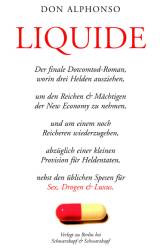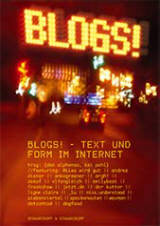... newer stories
Dienstag, 20. August 2013
Nordkorea? China? Russland? Iran?
England.
A little over two months ago I was contacted by a very senior government official claiming to represent the views of the prime minister. There followed two meetings in which he demanded the return or destruction of all the material we were working on. The tone was steely, if cordial, but there was an implicit threat that others within government and Whitehall favoured a far more draconian approach.
The mood toughened just over a month ago, when I received a phone call from the centre of government telling me: "You've had your fun. Now we want the stuff back." There followed further meetings with shadowy Whitehall figures. The demand was the same: hand the Snowden material back or destroy it. I explained that we could not research and report on this subject if we complied with this request. The man from Whitehall looked mystified. "You've had your debate. There's no need to write any more."
During one of these meetings I asked directly whether the government would move to close down the Guardian's reporting through a legal route – by going to court to force the surrender of the material on which we were working. The official confirmed that, in the absence of handover or destruction, this was indeed the government's intention. Prior restraint, near impossible in the US, was now explicitly and imminently on the table in the UK. But my experience over WikiLeaks – the thumb drive and the first amendment – had already prepared me for this moment. I explained to the man from Whitehall about the nature of international collaborations and the way in which, these days, media organisations could take advantage of the most permissive legal environments. Bluntly, we did not have to do our reporting from London. Already most of the NSA stories were being reported and edited out of New York. And had it occurred to him that Greenwald lived in Brazil?
The man was unmoved. And so one of the more bizarre moments in the Guardian's long history occurred – with two GCHQ security experts overseeing the destruction of hard drives in the Guardian's basement just to make sure there was nothing in the mangled bits of metal which could possibly be of any interest to passing Chinese agents. "We can call off the black helicopters," joked one as we swept up the remains of a MacBook Pro.
Whitehall was satisfied, but it felt like a peculiarly pointless piece of symbolism that understood nothing about the digital age. We will continue to do patient, painstaking reporting on the Snowden documents, we just won't do it in London. The seizure of Miranda's laptop, phones, hard drives and camera will similarly have no effect on Greenwald's work.
Das Furchtbare ist, dass jetzt noch nicht mal Cameron wird zurücktreten müssen. Man kann das machen und es politisch problemlos überleben. Das ist nur in Diktaturen möglich.
Der Guardian ist die wichtigste Zeitung der Welt und ich hoffe, dass sie überleben wird - und natürlich würde ich für solche Inhalte auch zahlen. Mir ist klar, dass ich hier das Urheberrecht ein klein wenig verletze, aber das sind so Texte, die so weit wie möglich verbreitet und bewahrt werden müssen. Damit man es weiss Und damit es später nicht heisst, man hätte es nicht wissen können, dass mindestens ein Staat, der in der EU ist, zu einer Geheimdienstdiktatur verkam. Und wenn ich mir IM Erika, den Pofalla und den Friedrich anschaue, würde ich auch nicht sagen, dass das hier nicht möglich ist.
A little over two months ago I was contacted by a very senior government official claiming to represent the views of the prime minister. There followed two meetings in which he demanded the return or destruction of all the material we were working on. The tone was steely, if cordial, but there was an implicit threat that others within government and Whitehall favoured a far more draconian approach.
The mood toughened just over a month ago, when I received a phone call from the centre of government telling me: "You've had your fun. Now we want the stuff back." There followed further meetings with shadowy Whitehall figures. The demand was the same: hand the Snowden material back or destroy it. I explained that we could not research and report on this subject if we complied with this request. The man from Whitehall looked mystified. "You've had your debate. There's no need to write any more."
During one of these meetings I asked directly whether the government would move to close down the Guardian's reporting through a legal route – by going to court to force the surrender of the material on which we were working. The official confirmed that, in the absence of handover or destruction, this was indeed the government's intention. Prior restraint, near impossible in the US, was now explicitly and imminently on the table in the UK. But my experience over WikiLeaks – the thumb drive and the first amendment – had already prepared me for this moment. I explained to the man from Whitehall about the nature of international collaborations and the way in which, these days, media organisations could take advantage of the most permissive legal environments. Bluntly, we did not have to do our reporting from London. Already most of the NSA stories were being reported and edited out of New York. And had it occurred to him that Greenwald lived in Brazil?
The man was unmoved. And so one of the more bizarre moments in the Guardian's long history occurred – with two GCHQ security experts overseeing the destruction of hard drives in the Guardian's basement just to make sure there was nothing in the mangled bits of metal which could possibly be of any interest to passing Chinese agents. "We can call off the black helicopters," joked one as we swept up the remains of a MacBook Pro.
Whitehall was satisfied, but it felt like a peculiarly pointless piece of symbolism that understood nothing about the digital age. We will continue to do patient, painstaking reporting on the Snowden documents, we just won't do it in London. The seizure of Miranda's laptop, phones, hard drives and camera will similarly have no effect on Greenwald's work.
Das Furchtbare ist, dass jetzt noch nicht mal Cameron wird zurücktreten müssen. Man kann das machen und es politisch problemlos überleben. Das ist nur in Diktaturen möglich.
Der Guardian ist die wichtigste Zeitung der Welt und ich hoffe, dass sie überleben wird - und natürlich würde ich für solche Inhalte auch zahlen. Mir ist klar, dass ich hier das Urheberrecht ein klein wenig verletze, aber das sind so Texte, die so weit wie möglich verbreitet und bewahrt werden müssen. Damit man es weiss Und damit es später nicht heisst, man hätte es nicht wissen können, dass mindestens ein Staat, der in der EU ist, zu einer Geheimdienstdiktatur verkam. Und wenn ich mir IM Erika, den Pofalla und den Friedrich anschaue, würde ich auch nicht sagen, dass das hier nicht möglich ist.
donalphons, 11:22h
... link (68 Kommentare) ... comment
... older stories





